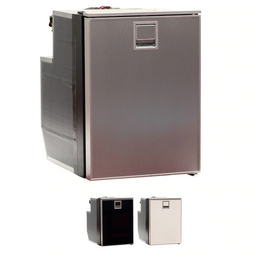JayGuevara
New Member
- Joined
- Oct 24, 2019
- Messages
- 36
Guys,
It says in their spec sheet that this fridge uses 265 (w/24) @5 degrees Celsius with an ambient temperature of 25 degrees C.
So how may amp hours does that draw in a 24 hour period running on 12v DC?
The calculator I just used says 22 ah in a 24 hour period.
Is this correct?
cheers.
It says in their spec sheet that this fridge uses 265 (w/24) @5 degrees Celsius with an ambient temperature of 25 degrees C.
So how may amp hours does that draw in a 24 hour period running on 12v DC?
The calculator I just used says 22 ah in a 24 hour period.
Is this correct?
cheers.




